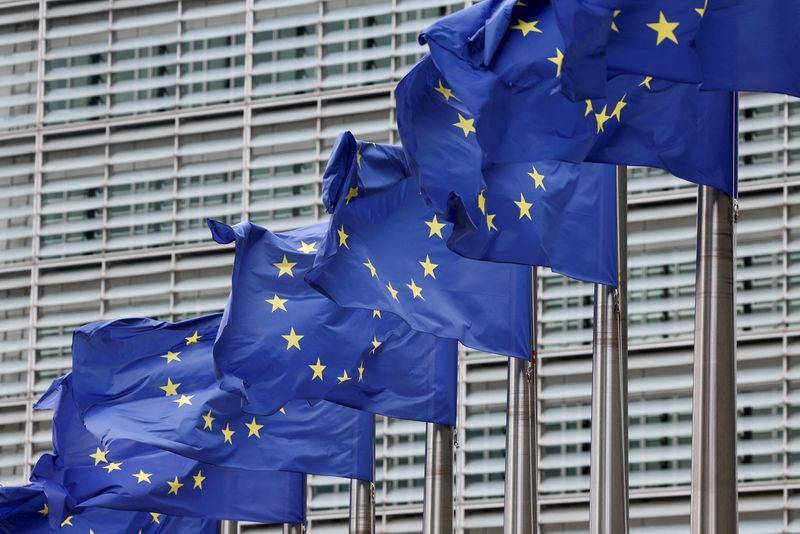Malta continues to show one of the strongest levels of support for European Union membership among all member states, though concerns about trust in...
Vous n'êtes pas connecté
Rubriques :
 - ENG.UATV.UA - A La Une - 02/Sep 16:12
- ENG.UATV.UA - A La Une - 02/Sep 16:12
Most EU Citizens Support Enlargement, Eurobarometer Survey Finds
A new Eurobarometer survey shows that a majority of EU citizens back further enlargement of the European Union, while public opinion in candidate countries also demonstrates strong support for eventual membership. According to the findings, 56% of EU citizens favor expansion, with enthusiasm particularly high among younger Europeans. Around two-thirds of respondents aged 15 to 39 said that candidate countries should join the EU once they meet the necessary conditions. Most respondents also believe enlargement would benefit their own country, citing a stronger global role for the EU, a larger market for businesses, more job opportunities, and enhanced solidarity and security. At the same time, concerns persist over migration, corruption, crime, and the financial costs of admitting new members. Citizens stressed the importance of ensuring that candidates uphold the rule of law, combat corruption, and protect fundamental rights as part of a credible, merit-based accession process. Despite the overall support, 67% of EU citizens said they feel poorly informed about enlargement. The European Commission has pledged to address this gap by providing clearer information and engaging directly with the public across member states. EU Commissioner for Enlargement Marta Kos underlined the significance of the results: “The survey shows that EU citizens — especially young people — support enlargement. Eurobarometer sends another clear signal: people want a reliable, values-based process, driven by real reforms. Together with the Member States, we will engage directly with citizens, address their concerns, and show how enlargement ensures peace, prosperity, and a more united Europe.” Support for EU accession is particularly strong in the Western Balkans, except for Serbia. Approval rates reach 91% in Albania and 69% in North Macedonia, where citizens associate membership with a better quality of life and open borders. Serbia, however, records the lowest support at just 33%. In the Eastern neighborhood, enthusiasm remains high: 74% of Georgians and 68% of Ukrainians support joining the EU. Moldova also demonstrates moderate backing, although public awareness of the EU remains limited. Overall, perceptions of the EU tend to be more positive in the Western Balkans than in Eastern partners, with Albania registering the strongest positive image (82%) and Serbia the weakest (38%). In Turkey, half of the population (50.7%) has a favorable view of the EU, while support for accession stands at 49.9%. However, only 40.6% consider themselves well informed about the EU, and respondents identified political will, rule-of-law shortcomings, and corruption as the main obstacles to membership. The Eurobarometer survey was conducted between February and March 2025, collecting the views of over 26,300 citizens across the 27 EU member states. Parallel perception surveys were carried out in Albania, Bosnia and Herzegovina, Kosovo, Georgia, Moldova, Montenegro, North Macedonia, Serbia, and Ukraine, while a separate study was commissioned in Turkey. The post Most EU Citizens Support Enlargement, Eurobarometer Survey Finds appeared first on Freedom.
Articles similaires
German Foreign Office: EU Must Give Membership Perspective to Ukraine, Moldova, and the Balkans
The geopolitical dimension of EU enlargement has become central in current discussions, making it essential to provide a clear membership...
Majority of EU citizens favour enlargement, poll indicates
(Reuters) -A European Commission poll released on Tuesday indicated that 56% of EU citizens support further enlargement of the European Union, though...
Cyprus backs Albania to join EU
Cyprus supports Albania’s accession to the EU, Foreign Minister Constantinos Kombos said on Sunday, adding that the EU’s enlargement into the...
Cyprus says will push for Serbia EU accession talks
Cyprus said on Monday it would push for Serbia-EU accession talks to begin, when it takes over the rotating presidency of the EU in January. The...
Denmark: Separating Ukraine and Moldova on their path to the EU would be “unfair”
Giving priority to opening negotiation clusters for Moldova, while separating its EU accession path from Ukraine’s, would be unfair toward...
Denmark: Separating Ukraine and Moldova on their path to the EU would be “unfair”
Giving priority to opening negotiation clusters for Moldova, while separating its EU accession path from Ukraine’s, would be unfair toward...
Greeks Favor a Stronger, More Unified EU in New Survey
A recent Eurobarometer survey reveals that Greeks hold a strong pro-EU stance, often exceeding the EU average in their expectations and demands. The...
EU Membership for Ukraine “Not Up for Negotiation” – Commissioner Kos
Ukraine’s EU accession will not be a bargaining chip in talks with Russia, European Commissioner for Enlargement Marta Kos said ahead of an...
Ukraine should become EU member by 2030 – Lithuanian foreign minister
Lithuanian Foreign Minister Kestutis Budrys believes that the deadline for Ukraine's accession to the European Union should be set for January 1,...
Les derniers communiqués
-
Aucun élément





